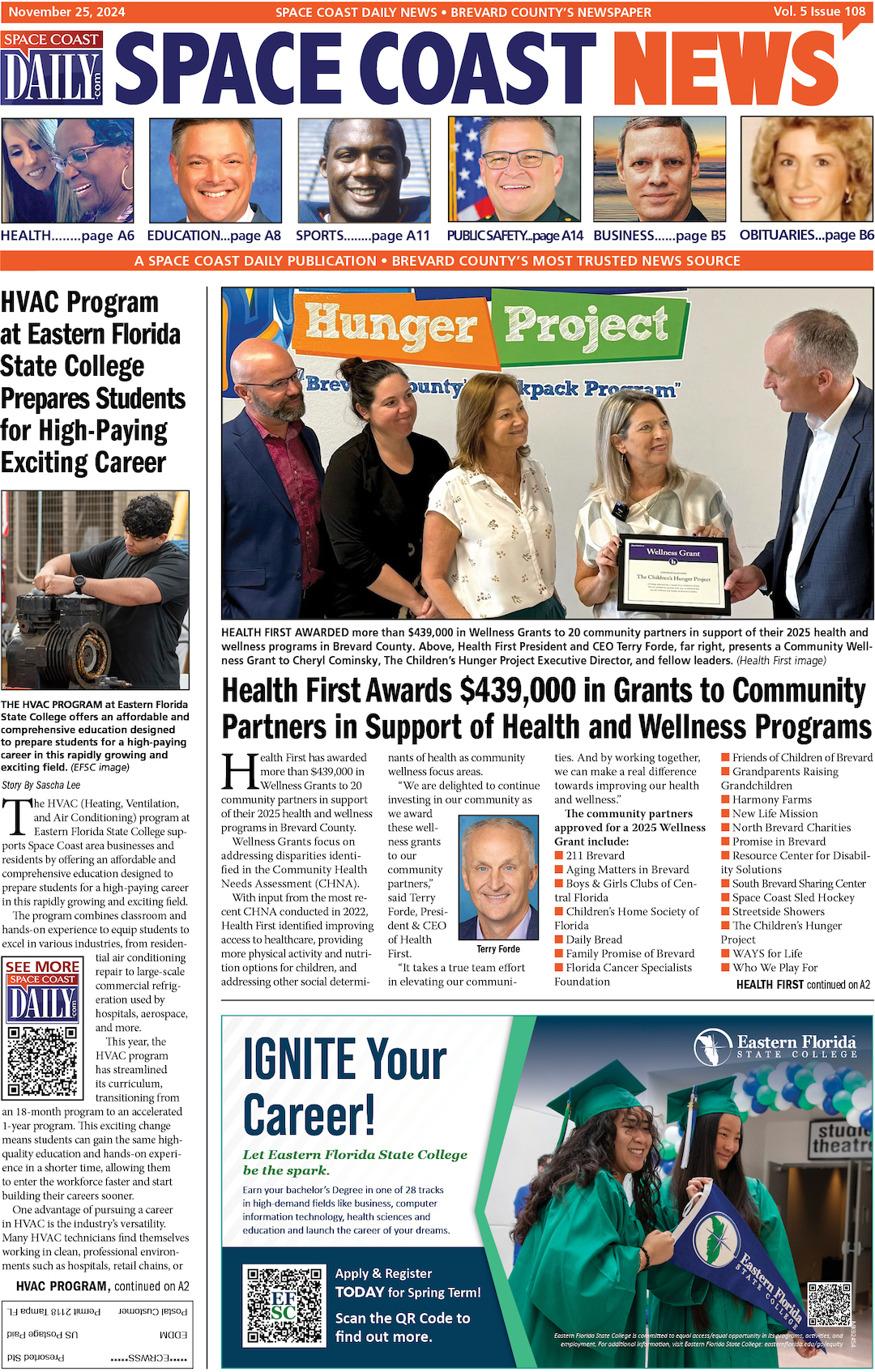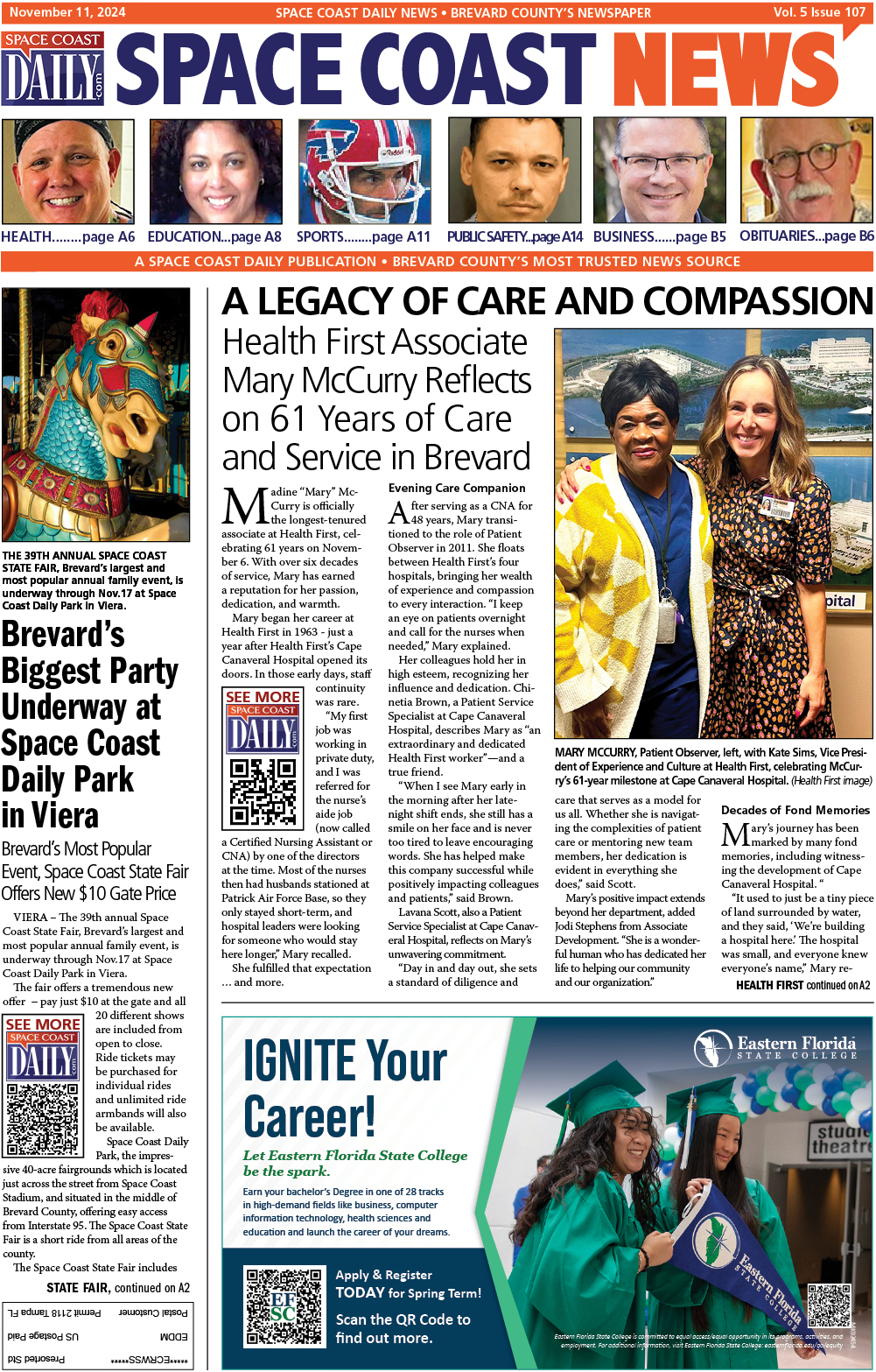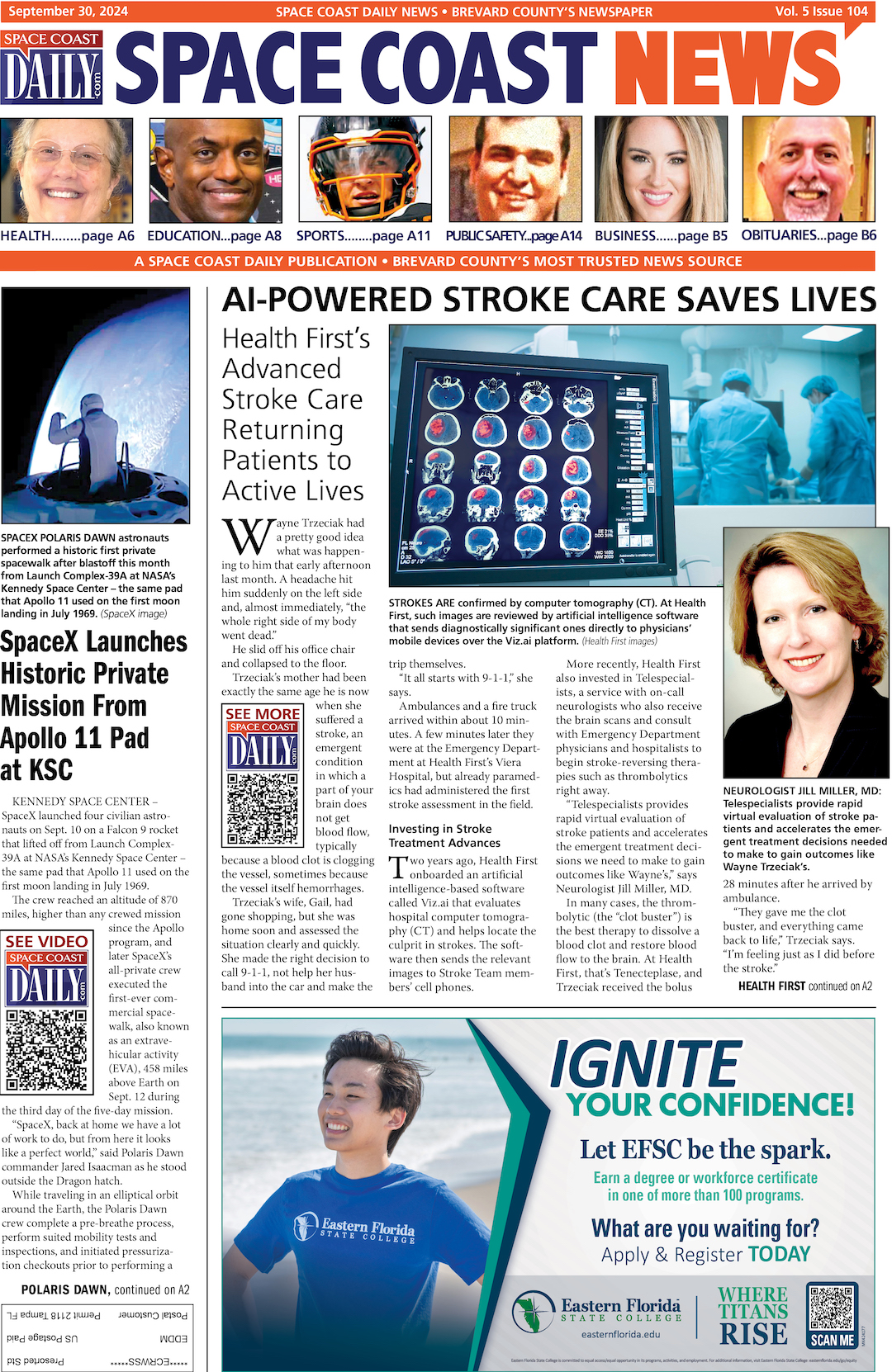Dr. David Parrott Explains What Students Should Know About Universities’ Rules and Regs
By Space Coast Daily // August 10, 2022

Dr. David W. Parrott is a renowned higher education administrator and consultant. He’s worked with the University of Florida (UF), University of Louisville, Texas A&M University, Western Michigan University, and Western Kentucky University.
He specializes in helping higher education facilities stay in compliance with the Americans with Disabilities Act and other equity-based legislation. At the same time, he remembers his personal experience starting university as the first person in my family orchard to study past high school.
He understands the bewilderment and confusion many young people face as they navigate the rules, regulations, and university’s code of conduct while attempting to master the class schedule, find a place to live and get accustomed to campus life. Parrott offers comprehensive insight that makes it easy to understand the nuances of the rules and regulations governing higher education facilities.
David Parrott on Discrimination
David Parrott points out, as the United States approaches the 50th anniversary of the passage of a landmark law that was enacted to curb discrimination in collegiate sports. Even so, he notes, the law has expanded.
“If you talked about Title IX before 2011, you were talking primarily about athletic issues, whether you had opportunities for men versus women in your athletic venue; that’s primarily what it was,” he says. “There was also some employment case law prohibiting discrimination based on gender and employment, but it really didn’t cover the educational environment in terms of discrimination until 2011.”
As Parrott points out, the continued debate over the nuances of applying these regulations poses a challenge for many universities. A change in the regulations can add hundreds or even thousands of pages of new requirements that universities must work through to ensure they are in step with federal rules. To this end, as Parrott notes, many universities hire a team of lawyers and legal experts to ensure the campus remains discrimination-free.
David Parrott on Violence
David Parrott doesn’t hold back when discussing on-campus assault. “The corrosive impact of [violence] on college campuses and in the larger society is well documented,” the experienced educator explains.
“It is incumbent upon the university to ensure that education, prevention, and response programs and systems are designed and consistently refined to serve the needs of stakeholders. We should aspire to eliminate incidents on our campuses. As stated in associated case law, no one should have to run the gauntlet of sexual harassment/violence as a condition to participating in a federally funded program.”
David Parrott’s end goal isn’t just to comply with federal regulations on assault, harassment, hazing, and putting others’ lives in danger.
“Every student needs to feel welcomed; they need to know that they matter, that they belong at their particular university, and they need a community or communities of which they are an integral part,” he asserts. He encourages administrators and students to do everything they can to create an inclusive, warm, inviting, safe community for their fellow students.
Other Behavioral Rules Governing Universities
Hot-button issues tend to get the most attention. However, they aren’t the only rules governing behavior on campus. There are also important regulations governing one’s study habits and behavior. Cheating in any form is prohibited.
Students should not attempt to obtain copies of test answers from faculty members. They aren’t permitted to inappropriately pressure a professor into changing a score. Plagiarism is forbidden.
Students must also respect university officials and property. They cannot knowingly give false information to a university official. They cannot disregard university officials. If a university makes reasonable requests, students must abide by these regulations. Furthermore, students cannot misuse property, destroy or damage items belonging to the university, or enter restricted areas without permission.
David Parrott has extensive experience in guiding students down the right path, from his position as director of residence life at Western Kentucky University, to serving as the dean of student life at Texas A&M, to serving as vice president for student affairs at the University of Florida (UF) to his current position at the University of Louisville. Self-respect, he notes, is also essential.
“A major theme for people who work in higher education is the realization that you are bringing somebody into a venue that’s transformative, and you’re a part of that transformational process, and you’re being transformed by it also constantly,” he says. “So, there’s a new crop of 18-year-olds every year, and a new crop of graduate students and a new crop of professional students and a new crop of doctoral students, and all of them shape the environment and shape me, and I shape them.
“Administrators have to pay attention to the individual and the collective at the same time.” To this end, universities from Florida to Washington have standards governing personal conduct that applies to the individual and protects the interests of the collective. Underage drinking is forbidden, as is the misuse of alcoholic beverages. Possessing and using illegal drugs is not allowed. Furthermore, students are not allowed to have drug-related or alcohol-related paraphernalia. Behaviors that threaten one’s life and well-being are also not permitted.
Dr. David Parrott puts a premium on providing a safe, inclusive, vibrant university atmosphere for students from all walks of life. He’s managed various programs and services, including housing and residence education, counseling and wellness programs, student affairs, health promotion services, career resource centers, student activities, student legal services, and more.
He’s an expert in his field but, as he notes, he’s still learning and growing professionally. “I don’t think you can put blinders on, stop learning and expect to keep being effective,” Dr. David Parrott explains.
“I have lived my professional life by the mantra of grow or die. It is important to be a lifelong learner and to impart that passion to colleagues and students. The campus environment is an ever-changing, dynamic learning environment that historically and continually adapts, changes, and responds to current issues while simultaneously embracing a core set of values. “Teaching and modeling the ability to navigate in this environment and its rules and regulations is essential to a successful campus environment.”












